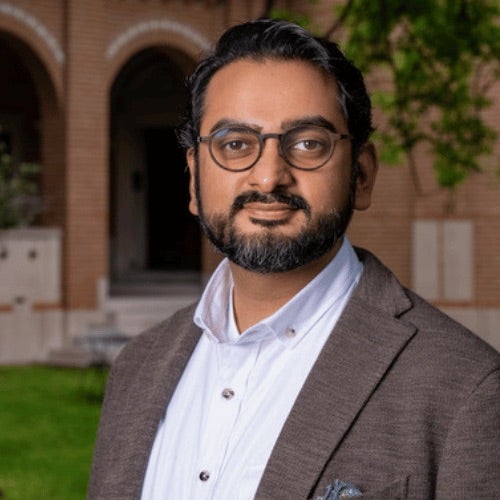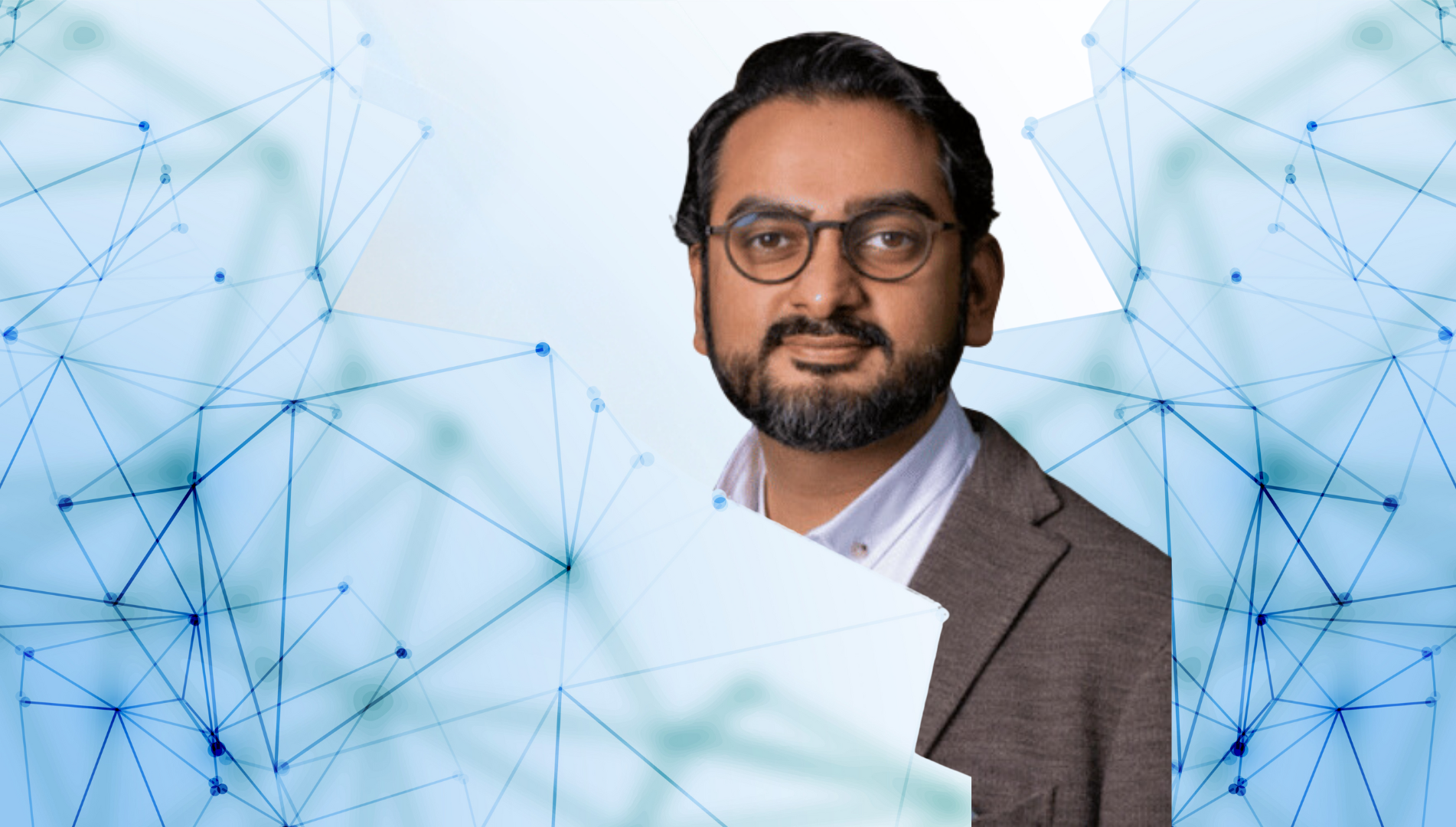
Raza Dawood, Associate Vice President of Transformational Technology and Innovation for Operations, is at the forefront of using artificial intelligence (AI) to revolutionize the work of OF&S. His goal? To blend teamwork and technology to achieve the university's ambitious objectives. We recently sat down with him to learn more.
Can you share a little about your background and the pivotal experiences shaping your leadership style?
My academic journey started at New York University, where I earned both a B.A. and an M.A. in English Literature with a focus on Post-Colonialism and the Enlightenment. During this time, I discovered my passion for data science and natural language processing. This blend of literary insight and technical expertise has greatly influenced my leadership style in the tech sector.
Exploring themes of universality in postcolonial literature sparked my interest in leveraging technology to foster equality. This led me to specialize in Natural Language Processing (NLP). NLP is at the core of a lot of the technology we use today, such as AI. It allows computers to convert speech-to-text, summarize large amounts of content, and generate new text.
Effective leadership promotes teamwork and respect and ensures we find solutions that work. I believe in leadership that promotes empathy and putting people first. My approach centers on understanding my team's perspectives and finding solutions that benefit them. I prioritize bringing diverse perspectives to the table, creating an environment free of judgment, and encouraging exploration over prescriptive solutions. We can align our work with the university's goals by cultivating creativity and curiosity.
What are your primary responsibilities in your current role, and what does a typical day look like for you?
My primary responsibility is identifying pressing issues that can be fixed with new ideas and ensuring these solutions fit seamlessly into our current systems and processes. On a typical day, I meet with leaders within OF&S to understand how new and emerging technology can support their work. I also dedicate a significant portion of my time to staying on top of global technological trends, particularly the latest developments in AI and models vying for everyone’s attention, like enterprise generative AI models. Generative AI (like ChatGPT) is artificial intelligence that creates different kinds of content, like text, audio, videos, images, and code. It helps automate content creation, personalize marketing, develop custom applications, and streamline software development. Multimodal GenAI can handle several data types —like tables, graphs, charts, text, and diagrams. This makes it more versatile and powerful because it can understand and respond to written and visual information, providing more comprehensive and accurate answers.
Although the novelty of AI can seem chaotic, I draw on my experience in similar situations to navigate and leverage technology effectively. For example, I’m working on a transformative Chatbot project with HR. A chatbot can assist with HR service desk questions, quickly answering frequently asked questions, like inquiries about benefits and leave policies. This helps reduce wait times and allows HR staff to focus on more complex issues.
Can you share your vision for the future? What does that look like for your team and Rice?
Looking ahead to the future, I envision a campus enabled by innovation and technology, where new AI solutions are adopted to enhance the strategic initiatives within OF&S. My goal is to ensure these technologies serve Rice’s core operations and mission and improve efficiency across campus. My team will gradually and deliberately expand, integrating closely with the OF&S division to better understand and address specific needs and processes.
When asked about the next five years, I note the tendency of some to underestimate short-term progress and overestimate long-term goals, so I concentrate on addressing problems step by step. To that end, over the next six months, our team will introduce "always on, always helpful" service bots that provide barrier-free assistance across the campus with things from HR service desk interactions to IT help desk tickets. This focus will pave the way for larger goals, like creating new AI models that faculty, staff, and students can test and use in a controlled environment, transforming these tools into curated products for the entire community.
Reflecting on your career, what have been some of your toughest challenges, and on the flip side, what accomplishments are you most proud of?
One of the most challenging hurdles I faced was the first time I managed a large team. This role required direct and indirect management, demanding careful navigation between mentoring needs and making tough strategic decisions. It took some time for me to learn how to manage projects effectively while ensuring my team members did well, and it was sometimes uncomfortable. By leaning into the discomfort, I learned to trust my gut and find a balance between the best for the team and the best outcomes. This experience taught me to manage projects effectively while ensuring my team members thrived. I found the experience very rewarding.
This experience also led to an accomplishment I am particularly proud of. While at UBS, I developed a strong mentoring relationship with a colleague. By applying what I had learned from management, I witnessed tremendous growth in their development. Seeing their hard work celebrated and recognized was an amazing reward.
How do you recharge your battery and have fun?
I enjoy retreating to my woodshop, where I craft various items, from furniture to jewelry boxes. It offers a respite from the digital world and a hands-on contrast to my professional work. Turning an unfinished piece of wood into something usable is like working with data sets, transforming them into actionable insights. It is a fulfilling way to foster my creativity and maintain balance.
Before joining Rice, Raza was the Executive Director of Data Science at UBS, leading machine learning and AI projects across marketing, wealth management, and investment banking sectors. His initiatives included developing knowledge graphs, persona models, and natural language processing tools. Before UBS, Raza worked as Director of Reporting and Analytics at the University of Colorado Boulder. There, he led the creation of the campus’ data lake and a suite of custom business intelligence visualizations, further honing his expertise in transforming data into strategic assets.

